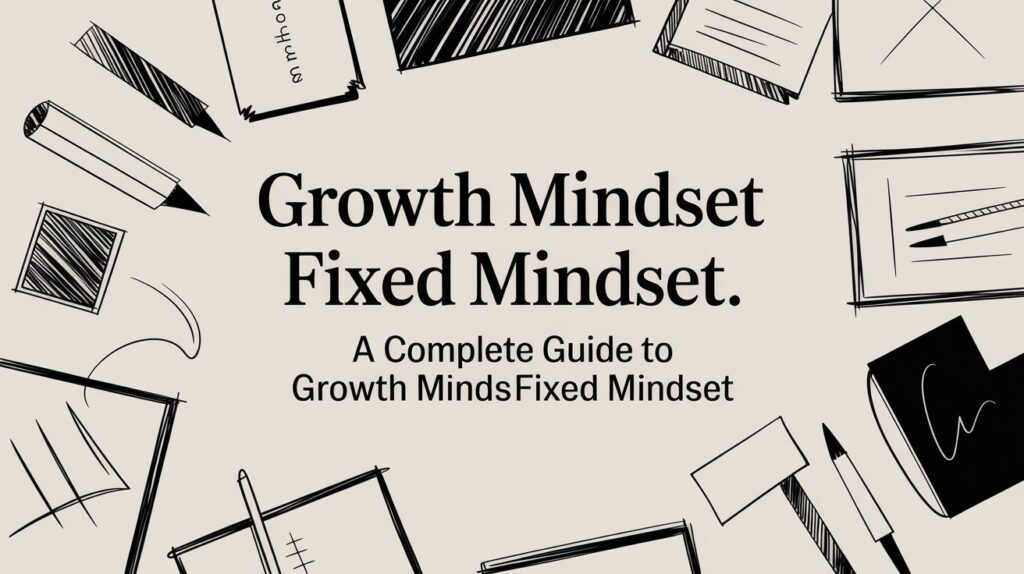Understanding The Fourth Turning: A Deep Dive into Generational Change

The Fourth Turning is a book by William Strauss and Neil Howe that explores how history moves in cycles. It shows how each generation responds to the challenges of its time, creating patterns that repeat over decades. This article will break down the key ideas of the Fourth Turning, focusing on the lessons we can learn from history and how they relate to our current challenges.
Key Takeaways
- The Fourth Turning describes a cycle in history that lasts about 80 years, divided into four phases.
- Each phase has its own mood and challenges, affecting how generations interact and respond to crises.
- The current Fourth Turning signals a time of upheaval, where old systems may break down, leading to new beginnings.
- Understanding generational roles can help us navigate current and future challenges more effectively.
- Learning from past cycles can provide insights into how to prepare for and manage the crises ahead.
The Concept of The Fourth Turning

Historical Context and Origins
The idea of the Fourth Turning comes from the book The Fourth Turning: An American Prophecy by William Strauss and Neil Howe. This theory suggests that history moves in cycles, with each cycle consisting of four distinct periods or "turnings." These turnings reflect the generational changes that shape society. The first turning is a High, followed by an Awakening, then an Unraveling, and finally, a Crisis, which is the Fourth Turning.
Key Theories and Ideas
The Fourth Turning theory emphasizes that each generation experiences a unique set of challenges and opportunities based on the turning they are born into. Here are some key points:
- Crisis periods often lead to significant changes in society.
- Generational archetypes play a crucial role in shaping responses to these crises.
- The outcomes of a Fourth Turning can lead to either renewal or destruction.
Impact on Society and Culture
The Fourth Turning can deeply affect society and culture. During a Fourth Turning, people may experience:
- Increased civic engagement as communities come together to face challenges.
- A shift in values as new ideas emerge from the crisis.
- Potential for conflict as different groups vie for power and influence.
The Fourth Turning is a reminder that history is not just a straight line; it is a cycle that can repeat itself, bringing both challenges and opportunities for growth.
In summary, understanding the Fourth Turning helps us see how past generations have navigated crises and what we might learn from their experiences as we face our own challenges today. This theory encourages us to reflect on our current situation and consider how we can prepare for the future, especially during times of upheaval.
Generational Archetypes and Their Roles
The Four Archetypes Explained
Generational change is influenced by four main archetypes: Prophets, Nomads, Heroes, and Artists. Each archetype has distinct characteristics and roles throughout history:
- Prophets: They grow up during a high period, becoming idealistic leaders in their youth and wise elders in later years.
- Nomads: Raised during an awakening, they often feel alienated and skeptical, becoming pragmatic leaders during crises.
- Heroes: This group is nurtured during a crisis, emerging as strong team players who tackle significant challenges.
- Artists: Overprotected in their youth, they become sensitive and empathetic leaders, often struggling with indecision.
Influence of Archetypes on Society
The impact of these archetypes on society is profound. Each generation shapes cultural norms and values:
- Prophets often lead social movements and inspire change.
- Nomads challenge established institutions and promote individualism.
- Heroes unite people during crises, fostering teamwork and resilience.
- Artists bring creativity and empathy, often advocating for social justice.
Case Studies of Generational Impact
To illustrate these archetypes, consider the following examples:
| Archetype | Historical Example | Key Contributions |
|---|---|---|
| Prophet | Abraham Lincoln | Emancipation Proclamation |
| Nomad | Generation X | Emphasis on individualism |
| Hero | The GI Generation | Victory in WWII |
| Artist | Baby Boomers | Cultural revolutions |
Understanding these archetypes helps us see how each generation contributes to the ongoing story of humanity. Their unique perspectives and experiences shape the world we live in today.
Historical Cycles and Their Significance

Understanding Historical Patterns
History is not just a series of random events; it follows patterns that repeat over time. These patterns can be seen in the way societies rise and fall, and how they respond to challenges. Understanding these cycles helps us see where we are today and where we might be headed in the future.
The Role of Crises in Change
Crises play a crucial role in shaping history. They often act as turning points that lead to significant changes in society. Here are some key points about crises:
- They can lead to the collapse of old systems.
- They often bring about new ideas and movements.
- They can unite or divide people, depending on how they are handled.
Lessons from Past Turnings
Looking back at history, we can learn valuable lessons from previous turnings. For example:
- Adaptability is essential for survival during crises.
- Societies that embrace change often emerge stronger.
- Understanding generational differences can help in navigating challenges.
History teaches us that while crises can be difficult, they also provide opportunities for growth and renewal.
In summary, recognizing the significance of historical cycles can help us prepare for the future and understand the complexity of America’s living and lost generations.
The Current Fourth Turning: Challenges and Opportunities
Identifying Modern Challenges
The current Fourth Turning brings significant challenges that society must face. These challenges include:
- Economic instability: Many people are struggling with job security and rising costs of living.
- Political division: There is a growing divide among citizens, leading to increased partisanship.
- Social unrest: Movements for change are rising, but they often lead to conflict rather than resolution.
Opportunities for Growth and Innovation
Despite the difficulties, this period also presents unique opportunities:
- Rebuilding trust: As old systems fail, there is a chance to create new, more trustworthy institutions.
- Innovative solutions: The crises can spark creativity, leading to new technologies and ideas.
- Community engagement: People are more likely to come together to solve problems, fostering a sense of unity.
Predictions for the Future
Looking ahead, the outcomes of this Fourth Turning could vary widely. It could lead to:
- A new era of cooperation where shared values guide society.
- A collapse of existing structures, resulting in chaos and uncertainty.
- A rebirth of civic engagement, where citizens actively participate in shaping their future.
The Fourth Turning is a time of great risk and potential. During a Fourth Turning, society faces significant challenges that threaten the established order. However, it is also a time when new ideas can flourish, leading to a brighter future if managed wisely.
Critiques and Controversies Surrounding The Fourth Turning
Debates Among Historians and Scholars
The Fourth Turning has sparked intense debates among historians and scholars. Some argue that the generational archetypes presented in the book are too simplistic. Critics believe that these archetypes fail to capture the complexity of historical figures and events. This perspective suggests that the authors may overlook important nuances in history.
Criticism of Generational Theory
Many critics point out that the generational theory proposed by Strauss and Howe can be overly deterministic. They argue that it implies a fixed pattern of behavior for each generation, which may not hold true in reality. This criticism raises questions about the validity of predicting future events based solely on past patterns.
Alternative Perspectives on Generational Change
There are various alternative views on how generational change occurs. Some scholars emphasize the role of social, economic, and political factors rather than generational cycles. They argue that focusing too much on generational differences can lead to misunderstandings about societal changes. Here are some alternative perspectives:
- Cultural influences: How culture shapes generational behavior.
- Technological advancements: The impact of technology on societal shifts.
- Global events: How international occurrences influence local generational dynamics.
Understanding the critiques of The Fourth Turning is essential for grasping its impact on society. While it offers a compelling framework, it is crucial to consider the broader context of historical events and the complexities of human behavior.
Preparing for the Future: Strategies and Insights
Adapting to Generational Shifts
To prepare for the future, it’s essential to understand and adapt to the changes brought by different generations. Here are some strategies:
- Embrace technology: As technology evolves, so should our skills. Learning new tools can help us stay relevant.
- Foster collaboration: Encourage teamwork across generations to share knowledge and perspectives.
- Stay informed: Keep up with trends and changes in society to anticipate future needs.
Strategies for Individuals and Communities
Individuals and communities can take proactive steps to navigate generational changes effectively:
- Engage in lifelong learning: Always seek new knowledge and skills to adapt to changing environments.
- Build strong networks: Connect with diverse groups to gain insights and support.
- Participate in community initiatives: Get involved in local projects that address generational issues.
The Role of Leadership in Navigating Change
Leadership plays a crucial role in guiding society through generational shifts. Effective leaders should:
- Encourage open dialogue: Create spaces for discussions about generational differences and challenges.
- Model adaptability: Show flexibility in leadership styles to meet the needs of various generations.
- Promote inclusivity: Ensure that all voices are heard and valued in decision-making processes.
In a rapidly changing world, the ability to adapt and learn from each other is vital for success.
By understanding these strategies, we can better prepare for the future and embrace the opportunities that come with generational change.
Conclusion
In conclusion, understanding the Fourth Turning helps us see how history repeats itself through different generations. Strauss and Howe show us that every twenty years, society goes through cycles that can lead to big changes. These cycles include times of growth, awakening, unraveling, and crisis. Right now, we are in a crisis period, which can be tough, but it also offers a chance for new beginnings. By learning from the past, we can prepare for what’s next. It’s important to remember that while we face challenges, we also have the power to shape our future together.
Frequently Asked Questions
What is the main idea behind The Fourth Turning?
The Fourth Turning explains how history repeats itself in cycles, with each cycle lasting about 80 years. It suggests that every generation goes through four phases: a high, an awakening, an unraveling, and a crisis.
Who are the authors of The Fourth Turning?
The book is written by William Strauss and Neil Howe, who are known for their work on generational theory.
What are the four generational roles described in the book?
The four roles are: Prophets, who are visionaries; Nomads, who are survivors; Heroes, who are strong and brave; and Artists, who are sensitive and creative.
How does The Fourth Turning relate to current events?
The authors suggest that we are currently in a Fourth Turning, which is a time of crisis that can lead to significant change in society.
Can understanding The Fourth Turning help us prepare for the future?
Yes, by recognizing the patterns in history, we can better understand potential challenges and opportunities that may arise.
What are some criticisms of The Fourth Turning theory?
Some critics argue that the theory oversimplifies complex historical events and that not all societies follow the same cyclical patterns.








Responses